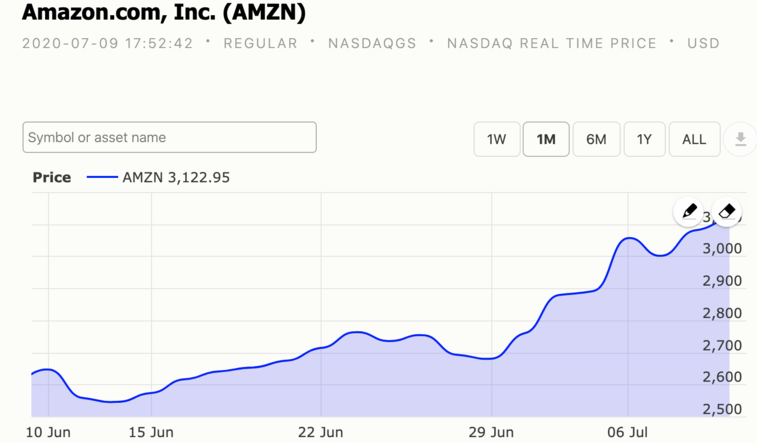The 10 Biggest Investment Mistakes to Avoid
- Posted on January 17, 2023
- Editors Pick
- By admin

Investing may be a great strategy to increase wealth and fulfill financial objectives, but it is not without risks. Several typical blunders that investors make might jeopardize their success. You can enhance your chances of avoiding investment mistakes if you are aware of these pitfalls and take action to prevent them.
Investing your hard-earned money is a serious matter. It's too simple to make mistakes that will cost you long-term, so preventing them is critical. Here are the top ten investment errors to avoid to make sensible decisions and optimize your investments:
1. Not having a plan: Without a strategy, investing might result in rash and emotional actions that could harm your account. Without a plan, you could not have a clear plan for purchasing and selling investments. This makes it challenging to reach your financial objectives. A lack of diversity in your portfolio can also result from not having a plan, leaving you vulnerable to unneeded risk.
2. Not diversifying: When investing, not diversifying might result in a concentration of risk in one sector or asset class. If the concentrated region performs poorly, this might be harmful to your portfolio. Without diversity, you can be vulnerable to market gyrations and economic downturns, leading to many losses. Not diversifying might also reduce your potential profits. It also prevents you from taking advantage of chances in different markets or industries.
3. Chasing performance: Chasing performance sometimes called chasing hot stocks, can result in rash and emotional judgments when investing. An investor can end up buying high and selling low, as a result, losing out on potential long-term growth. Additionally, chasing performance means purchasing stocks that have lately done well. Without considering the underlying fundamentals or the durability of the success. This can result in investing in overpriced assets and losing money.
4. Timing the market: Market timing, also known as timing the market while investing, is a high-risk tactic that can result in lost chances and substantial losses. Even seasoned investors find it challenging to forecast short-term market swings. Because it is such a complex and unpredictable process. Furthermore, the market entails hasty judgments focused on short-term market swings. Rather than considering the investment's long-term potential.
5. Not understanding the investment: Making bad decisions and suffering big financial losses might result from investing without understanding the investment. Investors risk making rash and ignorant judgments if unfamiliar with the investment's nature, underlying principles, and related hazards. Furthermore, high expectations and a lack of effective risk management might result from a lack of understanding of the investment.
6. Not paying attention to fees: Over time, ignoring expenses when investing can dramatically lower the portfolio's total worth by eating up gains. Investment expenditures, such as management fees, transaction costs, and other fees, may quickly mount up. If you don't pay attention to them, you can wind up spending more than required because they can vary substantially depending on the type of investment and the investment manager.
7. Being too conservative: Investing too conservatively, avoiding risk, and sticking mainly to low-yielding and safe assets, can restrict a portfolio's prospective profits. It is critical to weigh the risks and potential rewards. Long-term growth may be impossible to achieve without some element of risk. Furthermore, being excessively conservative might mean passing up prospects for larger earnings in other industries or marketplaces.
8. Not rebalancing your portfolio: Investing without rebalancing your portfolio might result in an imbalance of risk and reward. As individual assets perform differently, the portfolio's allocation may deviate from the initial allocation, increasing risk. Rebalancing aids in the restoration of the previous allocation while maintaining the optimum degree of risk. An investor who does not rebalance may take on more risk than expected or miss out on possible profits. Furthermore, failing to rebalance might result in a lack of diversification, which can be damaging to the portfolio if the focused region performs poorly.
9. Not having an emergency fund: Investing without an emergency fund might jeopardize an investor's financial stability. An emergency fund accounts for unanticipated costs like medical bills, job loss, or natural disasters. Without an emergency fund, an investor may be obliged to liquidate stocks to satisfy unforeseen costs during a market collapse, resulting in large financial losses.
10. Not reviewing your portfolio regularly: Regularly reviewing your portfolio and making adjustments, as needed, can help ensure that it stays aligned with your goals and that any underperforming investments are identified and addressed.
Conclusion
To summarize, investing is a strong method to build your money, but you must approach it with a plan and an awareness of the risks and benefits. You can make smarter investing selections and attain your financial objectives by avoiding these typical blunders.


Be the first to comment!
You must login to comment